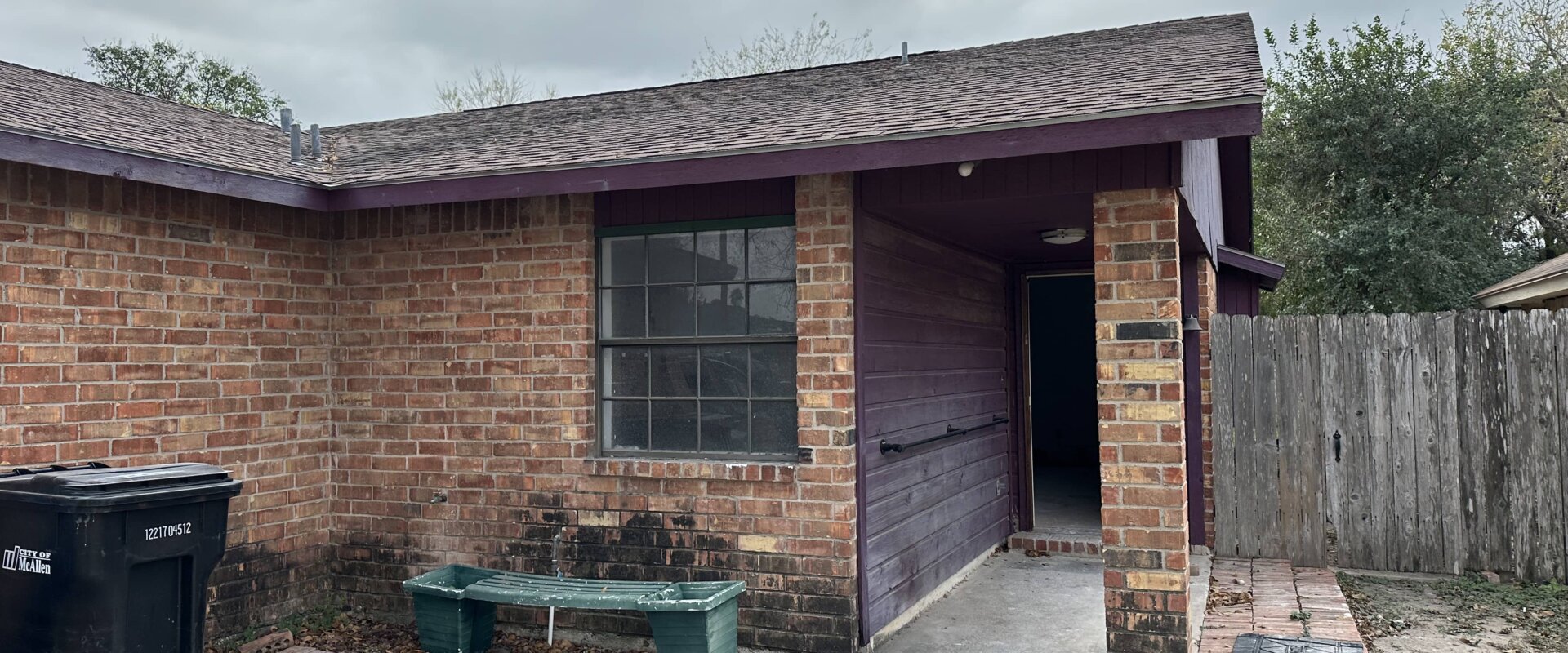Inheriting a property can present challenges both emotionally and financially. Questions may arise regarding the need for costly upgrades and repairs, potential tax obligations, and the involvement of a will or probate process. However, inherited properties also offer a valuable opportunity for real estate investors and buyers seeking discounted properties with potential for customization. Selling an inherited property as a homeowner requires specific considerations and steps to navigate this unique type of sale effectively. This guide will outline the essential process of selling an inherited property to maximize profitability.
How To Sell An Inherited Property in McAllen
So you’ve inherited a property and you’re not sure what happens next. In most states, the inherited property must go through a probate process so the courts can determine who is the legal owner. Probate is a legal process in which the Court legally transfers ownership of the estate’s assets to one or more beneficiaries and/or Heirs. Depending on the state of the will (if there was one), this process can be very fast or very slow.

Determine the Executor
For inherited properties with a will, establishing the executor of the estate should be straightforward. One of the most important aspects of a will is establishing an executor that is able to carry out the deceased’s wishes through the process of probate. Any assets listed in a will can’t be sold until the will is validated by the Court but, once approved, the executor of the will is allowed to act on the wishes of the deceased. But if the will is contested or there is no will, the process might take longer as the Court gets involved.
The probate court will appoint someone not associated with the family as an administrator to the estate. These administrators play a similar role as an executor; they are responsible for carrying out the wishes of the deceased as stated in the will, as well as paying off any of the estate’s debts and distributing any assets. They may also determine if any real estate assets will need to be sold to pay off the estate’s debts, including back taxes, mortgages, etc.

Working with Lawyers and Real Estate Agents
Navigating the complexities of probate requires the expertise of a skilled attorney to guide you through the process of selling an inherited home. Once probate court approval is granted for the property sale, the next vital step is to partner with a real estate agent well-versed in handling inherited properties in McAllen. A knowledgeable agent with probate experience understands the nuances and regulations involved in these transactions. They can help identify the right buyer, ensuring that you secure the best price for the inherited property in McAllen, TX [market_zip]. Moreover, they can provide valuable advice on cost-effective renovations and upgrades that can enhance the property’s value. By following their recommendations, you can expedite the sale process and maximize profitability, avoiding prolonged listings and underselling scenarios.

Resolve Any Debts
When you think of “inheritance,” do you envision a distant relative unexpectedly leaving you a million-dollar ranch, or do you face the reality of inheriting an older property entangled with title liens, back taxes, code violations, and a burdensome mortgage that might not yield much profit upon sale? Coping with the aftermath of a loved one’s passing often involves addressing their debts, whether in the form of outstanding taxes, mortgage obligations, or accumulated credit card balances. It is not uncommon to uncover long-forgotten liens and debts during the settlement process, all of which must be settled before any inheritance can be accessed. Despite the perceived value of inheriting a property, it can quickly turn into a financial burden. Seeking guidance from a knowledgeable estate advisor is crucial to exploring viable solutions for managing an inherited estate.

Clean & Restore the Home
After securing ownership of the property, the next critical step is deciding whether to inhabit it, rent it out, or list it for sale. In situations where a family member passes away, they may leave behind a property in need of significant attention. This could involve neglected maintenance requiring thorough cleaning and repairs, or a lack of updates necessitating a complete renovation for better market appeal. Inherited older properties often come with issues like plumbing leaks and unpermitted additions that may not meet current standards, leading to potential costly fixes. If you inherit a property that is difficult to sell due to its condition, consider seeking a valuation from a trusted local cash buyer experienced in handling such properties. Dolfin RGV, a seasoned local investor with nearly two decades of experience in the Valley, can provide a fair offer for your property. Contact Dolfin RGV at (956) 904 5234 to explore your options.
Contact Us today for your cash offer!
Contact us today and get a competitive cash offer for an inherited house, condo, or property. We buy homes in any condition, and we can also help with the convoluted process of selling a house in probate!
Do all heirs have to agree to sell the property?
No, the Heirs don’t have to agree to sell an inherited house or property if ownership has been established by a will or the probate court. But if ownership has not been established, such as with an estate with no will and/or a Court-appointed administrator, then all Heirs must agree to the sale. This also includes properties that have been put up at auction by the Court to pay off the estate’s debts. If a buyer purchases a house at auction but one or more of the Heirs disagree with the sale, the purchase must be put on hold while the disagreement is worked out and a settlement is reached.
How to Settle a Disagreement
There are a variety of options for settling disagreements among Heirs over an estate, but the first step is making sure that a loved one has an executor. Having a point person who is there to make sure the deceased’s wishes are followed as set forth in the will can ensure that there are no arguments over how the assets will be dealt with. If there is no executor and the will is being disputed, your next step may be hiring a mediator. Having a neutral third party to help work out differences will be much more affordable than a legal battle in probate court.
Best Practices
But what if the issue is around the executor themselves? Disputes can occur when a family member is named as the executor or trustee of a will, causing strife with the other family members. If this has happened to you, an option is for the person to decline the appointment and choose an independent fiduciary, such as an estate-planning attorney, to administer the will. Stepping back while a neutral party steps in might not just keep arguments from cropping up, but might also give everyone the time and space to deal with difficult emotions before it permanently damages your family.
How is inherited property taxed when sold?
State and local governments in the United States collected over $5.3 billion in revenue from estate and inheritance taxes in 2020. That’s a lot of taxes! But with laws and regulations different from state-to-state, you’ll want to do your research and contact a lawyer with knowledge and experience of taxes and estate planning as you deal with a surprise inheritance or you’re writing your own will.
State Tax Laws
Each state has different laws regarding inheritances. In the case of the sale of an inherited property, states may take an estate tax, an inheritance tax, as well as a capital gains tax on your inheritance. Currently, twelve states have an estate tax, 5 have an inheritance tax, and one has both an estate and inheritance tax.

Capital Gains Tax on Inherited Property
What is the capital gains tax and which states require it? The capital gains tax is paid on the appreciation of any assets that an heir inherits through an estate but it is only levied once the asset is sold for a profit, not when you inherit. This tax is then paid on the difference between the sale price and the purchase price of the property. Most states require this tax paid on an inherited property, but there may be exemptions for individuals selling a property for less than a certain amount. An example is Washington State, where the capital gains tax is not levied on homes and/or properties sold for less than $250,000. There may also be other legal ways to get around or reduce the capital gains tax in your state, including reinvesting the money in another property. Consult with a tax lawyer knowledgeable of the laws in the area you will be selling before proceeding with the sale of your property.

Estate Taxes
An estate tax is a tax paid directly out of the estate to the state before anyone is able to inherit it. Worried that you might get a huge hit taken from the estate? Don’t worry! The estate tax has a minimum threshold which in 2023 was $12.92 million for individuals. This means that the government is not able to charge you an estate tax unless your total taxable estate is worth $12,920,001. The remainder is passed on estate tax-free. Despite having such a high threshold, each year more states repeal their estate tax laws, losing out on millions of dollars of revenue.

Inheritance Taxes
Only six states have an inheritance tax, meaning that it is likely that you are in the lucky majority that won’t have to deal with this. But if you live in one of those six states – Maryland, Nebraska, Kentucky, New Jersey, Pennsylvania, and Iowa – you as a beneficiary/Heir to an estate will be required to pay taxes on your inherited assets and properties. But don’t worry – even if you live in a state that has an inheritance tax, you won’t have to pay a dime if the deceased lived in one of the 44 states that does not have this tax.
Documents required to sell an inherited property
To show legal ownership and place a property for sale, you will need to have a copy of the documents issued by the court that grant you the legal authority to act as the executor or administrator of the estate. These documents will establish your ability to manage the inherited property. Once a buyer is found and you are ready to close, you’ll need the deed, title insurance, or other relevant legal records to establish the legal ownership of the inherited property.
Do your research regarding what additional documents may be needed to sell an inherited property! Some jurisdictions may require additional property-related documents, including previous surveys, inspections, or any other relevant paperwork that pertains to the property’s condition or history.
Is there an easier way to sell?
Yes, there is! Dolfin RGV is a direct house buying company that has built our reputation on buying inherited houses for cash with less stress and less fees. Contact us today and get a competitive cash offer for an inherited house, condo, or property. We buy homes in any condition, and we can also help with the convoluted process of selling a house in probate! Let us make your home selling experience as straightforward and stress-free as possible so you can move on with your life.
Even if the house suffered major damage in the last storm or was neglected for years and needs a large amount of upgrades to make it “market ready”, once you accept our fair cash offer our team of experts will handle all of those expensive repairs so you don’t have to! We make selling an inherited house easy.
Contact Us today for your cash offer!
If you own a property that’s stuck in probate that you are ready to sell, call us at (956) 904 5234 day or night to get a competitive cash offer for that inherited home. We buy properties in any condition and no matter what the estate’s financial situation might be.

